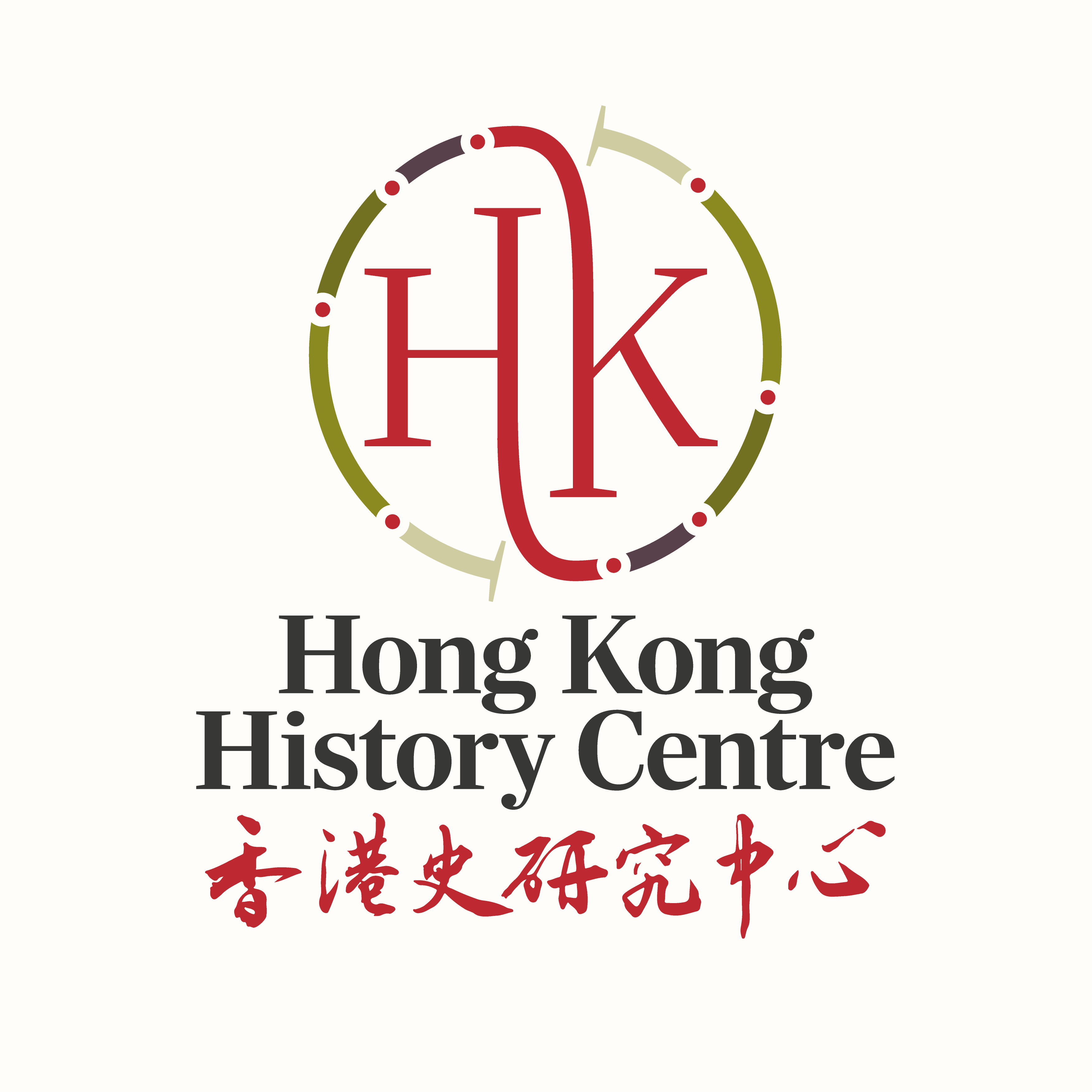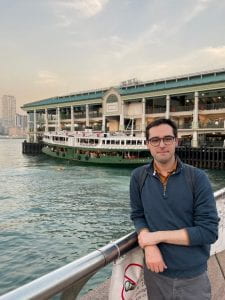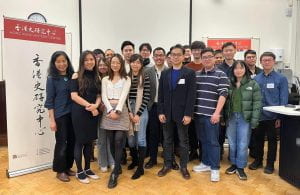Showing 1-10 of 17 items

One of the Centre’s missions is to nurture a new generation of Hong Kong historians. An Early Career Scholar Network was created under the Hong Kong History Centre in June 2023. It is intended to help create a community of Hong Kong historians and offer a platform for face-to-face interaction and academic exchange among young scholars. Research students and fresh doctoral graduates working on socioeconomic, political and cultural history of

On 6th November 2024, we had our fourth meeting of Network of Early Career Scholars on Hong Kong History. An enjoyable afternoon with Ryan Iu (University of Bristol) exploring the Hong Kong Chinese and elite network within both local and trans-colonial contexts during the late nineteenth and early twentieth centuries; Matthew Hurst (University of York) exploring the ways in which Hong Kong people tried to influence the Joint Declaration negotiations

One of the Centre’s missions is to nurture a new generation of Hong Kong historians. An Early Career Scholar Network was created under the Hong Kong History Centre in June 2023. It is intended to help create a community of Hong Kong historians and offer a platform for face-to-face interaction and academic exchange among young scholars. Research students and fresh doctoral graduates working on socioeconomic, political and cultural history of

One of the Centre’s missions is to nurture a new generation of Hong Kong historians. An Early Career Scholar Network was created under the Hong Kong History Centre in June 2023. It is intended to help create a community of Hong Kong historians and offer a platform for face-to-face interaction and academic exchange among young scholars. Research students and fresh doctoral graduates working on socioeconomic, political and cultural history of

One of the Centre’s missions is to nurture a new generation of Hong Kong historians. An Early Career Scholar Network was created under the Hong Kong History Centre in June 2023. It is intended to help create a community of Hong Kong historians and offer a platform for face-to-face interaction and academic exchange among young scholars. Research students and fresh doctoral graduates working on socioeconomic, political and cultural history of

One of the Centre’s missions is to nurture a new generation of Hong Kong historians. An Early Career Scholar Network was created under the Hong Kong History Centre in June 2023. It is intended to help create a community of Hong Kong historians and offer a platform for face-to-face interaction and academic exchange among young scholars. Research students and fresh doctoral graduates working on socioeconomic, political and cultural history of

One of the Centre’s missions is to nurture a new generation of Hong Kong historians. An Early Career Scholar Network was created under the Hong Kong History Centre in June 2023. It is intended to help create a community of Hong Kong historians and offer a platform for face-to-face interaction and academic exchange among young scholars. Research students and fresh doctoral graduates working on socioeconomic, political and cultural history of

One of the Centre’s missions is to nurture a new generation of Hong Kong historians. An Early Career Scholar Network was created under the Hong Kong History Centre in June 2023. It is intended to help create a community of Hong Kong historians and offer a platform for face-to-face interaction and academic exchange among young scholars. Research students and fresh doctoral graduates working on socioeconomic, political and cultural history of

One of the Centre’s missions is to nurture a new generation of Hong Kong historians. An Early Career Scholar Network was created under the Hong Kong History Centre in June 2023. It is intended to help create a community of Hong Kong historians and offer a platform for face-to-face interaction and academic exchange among young scholars. Research students and fresh doctoral graduates working on socioeconomic, political and cultural history of

On 22th March, we had our third meeting of Network of Early Career Scholars on Hong Kong History. An enjoyable afternoon with Sze Hong Lam (Leiden University) examining at the international legal implications of the United Nations General Assembly in Resolution 1514(XV) and 1541(XV), and how they have a lasting impact on Hong Kong’s autonomy even today; Alex Cheung (University of Bristol) reconstructing daily life experience of living in Chinese